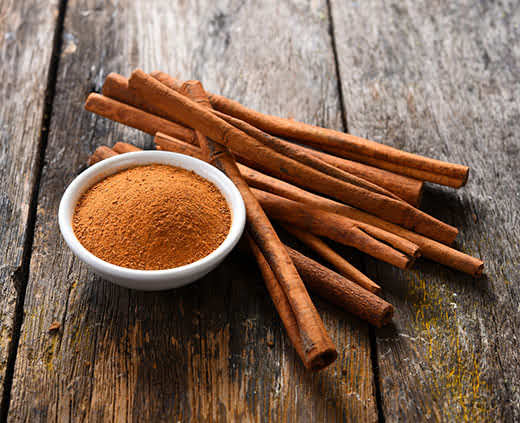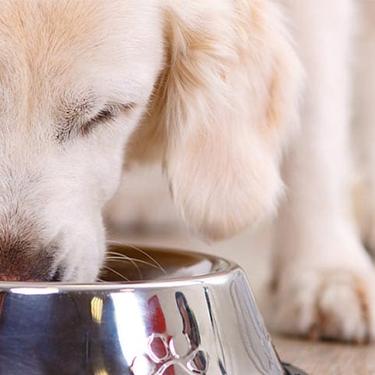
-
Find the right food for your pet
Take this quiz to see which food may be the best for your furry friend.
Find the right food for your pet
Take this quiz to see which food may be the best for your furry friend.
Featured products
 Small & Mini Savory Stew with Chicken & Vegetables Dog Food
Small & Mini Savory Stew with Chicken & Vegetables Dog FoodA delicious complement to the nutrition of Science Diet Small & Mini 7+ dog food
Shop Now Adult Healthy Cuisine Roasted Chicken, Carrots & Spinach Stew Dog Food
Adult Healthy Cuisine Roasted Chicken, Carrots & Spinach Stew Dog FoodDelicious roasted chicken paired with tender vegetables in a succulent stew
Shop Now Adult 7+ Perfect Digestion Chicken, Whole Oats & Brown Rice Recipe Dog Food
Adult 7+ Perfect Digestion Chicken, Whole Oats & Brown Rice Recipe Dog FoodScience Diet's breakthrough nutrition supports ultimate digestive well-being & healthy microbiome for dogs age 7+
Shop NowFeatured products
 Adult 7+ Tender Tuna Dinner Cat Food
Adult 7+ Tender Tuna Dinner Cat FoodWith delicious chunks in a decadent gravy
Shop Now Adult Savory Entrée Can Variety Pack Cat Food
Adult Savory Entrée Can Variety Pack Cat FoodPrecisely balanced nutrition with the delicious taste of savory minced chicken to help fuel the energy needs of cats during the prime of their life
Shop Now Adult 7+ Senior Vitality Chicken & Vegetable Stew Cat Food
Adult 7+ Senior Vitality Chicken & Vegetable Stew Cat FoodImproves Everyday Ability to Get Up & Go
Shop Now -
Dog
- Dog Tips & Articles
-
Health Category
- Weight
- Food & Environmental Sensitivities
- Urinary
- Digestive
- Joint
- Kidney
-
Life Stage
- Puppy Nutrition
- Adult Nutrition
- Senior Nutrition
Cat
- Cat Tips & Articles
-
Health Category
- Weight
- Skin & Food Sensitivities
- Urinary
- Digestive
- Kidney
-
Life Stage
- Kitten Nutrition
- Adult Nutrition
Featured articles
 Does My Pet Hate Me?
Does My Pet Hate Me?Learn tips for bonding with your pet if you've ever thought, 'My dog doesn't like me, or 'Why do I have a standoffish cat?'
Read More Do Dogs and Cats have Belly Buttons?
Do Dogs and Cats have Belly Buttons?Learn whether cats & dogs have belly buttons like humans, what the function is, and if there are any health concerns associated with it.
Read More Why Are Dogs and Cats So Cute?
Why Are Dogs and Cats So Cute?If waggy puppy dog tails and furry kitten yawns make you swoon, you're not alone. Why are cats so cute? And, dogs too! Let's find out!
Read More -


As a pet parent, you're particularly careful about what goes into your dog's food. You want pet food that's filled with nutrients that will help your dog grow and stay healthy.
Knowing what's in your dog's treats is just as important as monitoring their food. Whether you buy treats or make them, you'll need to know which ingredients are good for your pup and which aren't. While sweet treats that include cinnamon might sound delicious to you, you'll want to be sure certain spices are healthy for your furry friend. So, can your dog have cinnamon? Is cinnamon bad for dogs? Let's find out.
Can Dogs Have Cinnamon?

Is cinnamon bad for dogs? The answer to this question is both yes and no. If your pet eats a small amount of cinnamon, you likely don't have to worry about toxicity. Cinnamon shouldn't cause any adverse reactions in very small doses. Larger doses and certain types of cinnamon, however, may cause some concern. In a Pet Poison Helpline article, Catherine Angle, DVM confirms that it's not necessarily the ingredient that's the problem, but it's the dose and form that create the toxin: "Large overdoses of the powder or exposure to the essential oil can lead to low blood sugar, liver disease, vomiting, diarrhea and changes in heart rate." According to Dr. Angle, a large dose is 1 teaspoon of the powder and a smaller amount of the oil.
The ways dogs most commonly experience side effects after eating cinnamon include irritation and sensitization — particularly in their mouths. Also, dogs may ingest the spice by way of breathing it, which may cause lung irritation, difficulty breathing or coughing.
If your dog eats cinnamon, the first thing you need to do is determine what type of cinnamon and how much of it they consumed. Did your dog start chewing on cinnamon sticks they found in your kitchen? Did they ingest cinnamon essential oil, ground cinnamon or cinnamon in baked goods? How much were they able to ingest? Once you've figured out what type of cinnamon they've ingested and how much, you can call your veterinarian and seek their guidance on the next best steps for your pup.
Other Common Spices to Watch Out For
While cinnamon is OK for your dog to ingest in very small amounts, it likely isn't the only spice in your spice rack. Here are a few spices you'll want to keep away from your dog.



Tasty Tips
Nutmeg
In the Pet Poison Helpline article, Dr. Charlotte Flint says, "If a very large amount of nutmeg is ingested, myristicin toxicity can cause symptoms including hallucinations, disorientation, increased heart rate, high blood pressure, dry mouth, abdominal pain and possibly seizures." Much like cinnamon, Dr. Flint notes, these adverse outcomes are unlikely to occur if your pet eats food with nutmeg in it. Pure nutmeg, however, should be avoided.
Onion and Garlic Powders or Salts
You know to keep your dog away from onions and garlic, so make sure the powders of those vegetables are stored in a safe spot your dog can't access as well. And remember, this goes for anything in the onion family, such as shallots, scallions, chives or any other dried onion products you might have in your spice cabinet.
Salt and Pepper
Black pepper isn't necessarily toxic for dogs, but ingesting too much of it may cause stomach problems, like gas or diarrhea. While salt isn't quite a spice — it's a mineral — it's also on our list of ingredients to keep away from your pet. Like cinnamon, salt is only harmful if your dog consumes too much of it. A significant intake of salt may increase blood pressure or aggravate heart disease, among other issues.
Even though cinnamon is OK in small amounts, it's best to keep it out of your pet's reach when you're cooking, baking or planning where to safely store your spices. If you're worried about anything your dog ingests, contact your vet immediately.


Erin Ollila believes in the power of words and how a message can inform—and even transform—its intended audience. Her writing can be found all over the internet and in print, and includes interviews, ghostwriting, blog posts, and creative nonfiction. Erin is a geek for SEO and all things social media. She graduated from Fairfield University with an M.F.A. in Creative Writing. Reach out to her on Twitter @ReinventingErin or learn more about her at http://erinollila.com.
Related products
Related articles

Learn about choosing the right dog food to help ensure your adult dog will receive the correct balance of nutrition.

Proper nutrition for your pregnant or nursing dog is vital to her and her puppy's health. Learn what you should do provide her with the proper nutrients.

Learn how today's wet dog food blends have gotten a face lift, and how you'll provide your dog the nutrition he needs in the form he loves.

Learn the the dangers of feeding your dog chocolate, which types are most dangerous, and what to do if you discover that they have consumed chocolate.

Put your dog on a diet without them knowing
Our low calorie formula helps you control your dog's weight. It's packed with high-quality protein for building lean muscles, and made with purposeful ingredients for a flavorful, nutritious meal. Clinically proven antioxidants, Vitamin C+E, help promote a healthy immune system.
Put your dog on a diet without them knowing
Our low calorie formula helps you control your dog's weight. It's packed with high-quality protein for building lean muscles, and made with purposeful ingredients for a flavorful, nutritious meal. Clinically proven antioxidants, Vitamin C+E, help promote a healthy immune system.

